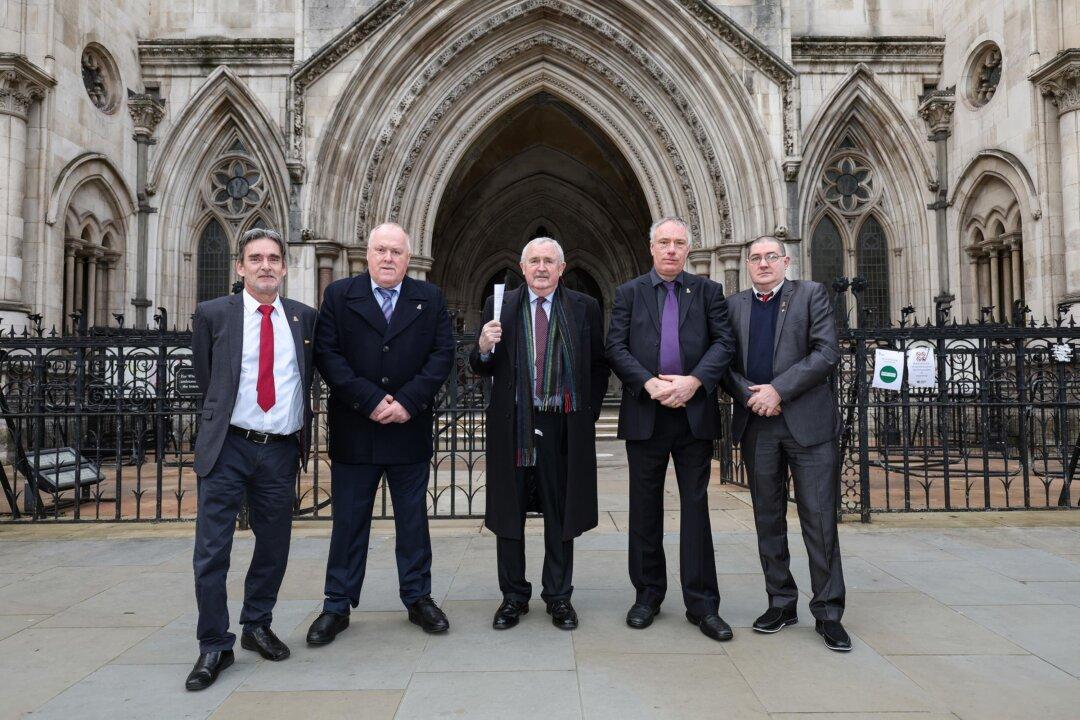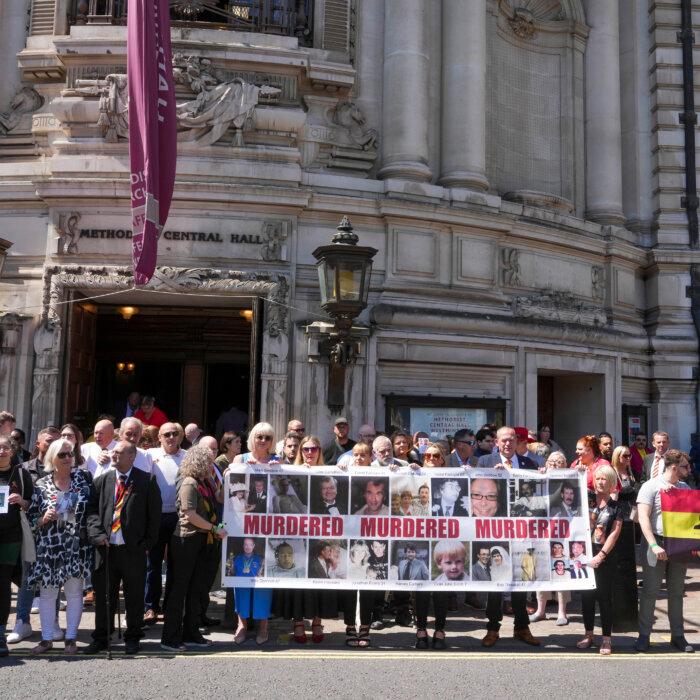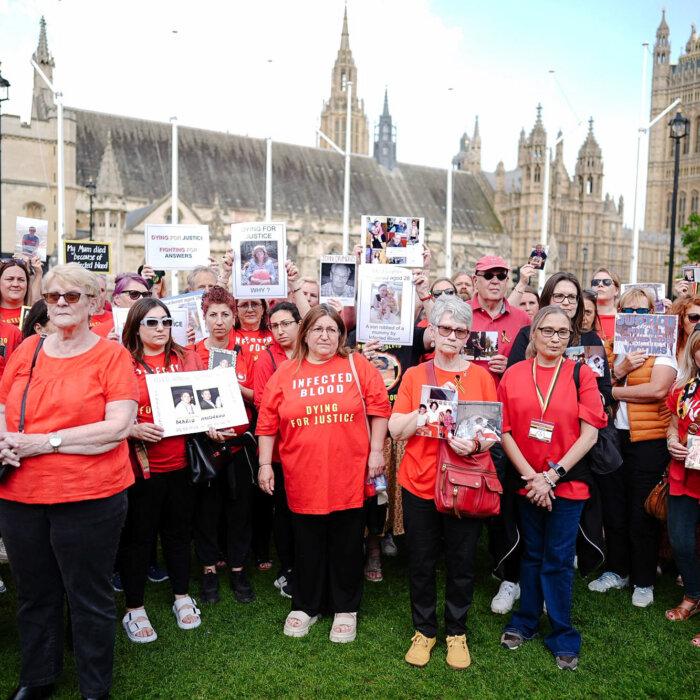An additional £15,000 payout for pupils infected with HIV and hepatitis while subjected to unethical medical testing in the 1970s and 1980s has been branded “derisory” and “insulting” by victims.
The infected blood scandal has been labelled the biggest treatment disaster in NHS history, with victims set to receive up to £2.7 million each with an “unethical research” supplement for those subjected to the testing.
‘A Kick in The Teeth’
“We all think it is derisory and insulting,” Warwick said.“It is unbelievable and unfathomable where they got this figure from. It’s a kick in the teeth.”
Warwick said the proposed payment failed to reflect the gravity of a case that was “perhaps a breach of the Nuremberg (code).”
He said that a yearly supplement for those experimented on might have been more appropriate, and added, “We are considering taking legal advice.”
Warwick was diagnosed with the genetic blood disorder haemophilia, which impairs the body’s ability to clot, at the age of three.
He was infected with HIV and hepatitis B after receiving the contaminated blood products, along with more than 100 pupils at the school, the majority of whom have since died.
Another victim and former Treloar pupil, Gary Webster, who was also infected with HIV after being given the experimental treatment for years, said that while victims are pleased the government is moving forward with compensation, he believes the amounts for unethical research victims are “a bit of an insult really.”
“I’d love to know how those figures have been reached. Otherwise, is there a path to legal action? I don’t know until we speak to solicitors.”
Treloar’s remains open as a school for disabled pupils. It was founded in 1907 when the then lord mayor of the City of London, William Purdie Treloar, set up his “Cripples’ Fund” as his mayoral appeal.
More Than 30,000 Victims of Scandal
In the 1970s and 1980s, more than 30,000 people were infected with HIV and hepatitis after being injected with contaminated blood products imported from the United States and manufactured from non-heat-treated blood plasma.More than 3,000 victims are believed to have died because of the disaster, according to the 2,000 page report of the Infected Blood Inquiry, published in May.
As well as haemophiliacs, those who received blood transfusions after childbirth, surgery or accidents were also victims.
No criminal charges have been brought against any individual or organisation involved in the scandal, although a team is reportedly looking at Brian Langstaff’s final report on behalf of the National Police Chiefs’ Council.
The government announced updates to the multi-billion compensation scheme last week, including confirmation that victims will be given support payments for life as well as additional the awards to those used for unethical research.
Payouts for survivors are due to begin by the end of the year, and by next year for affected people such as family members of the deceased, under a second set of regulations.
Interim chairman of the compensation authority, Sir Robert Francis, KC, made 74 proposals for the rollout of the scheme, the majority of which were accepted by the government.
Paymaster General Nick Thomas-Symonds said “no amount of money can ever make up for what happened” but that ministers had acted in line with the expert advice they had been given.
“That is only one small element of the much larger amounts of money that are available under the tariff-based scheme,” he said.
Highest Awards Could Exceed £2.5 Million
The government has not put a figure on how much the scheme might cost overall, though the highest awards for individuals are likely to exceed £2.5 million.Some 3,000 people across the UK are estimated to have registered interest with the compensation scheme, and more could still come forward with a claim.
Rachel Halford, CEO of the Hepatitis C Trust, said: “We’re pleased that the Government has listened to the concerns of the infected blood community regarding the continuation of support payments for life, which had been a significant source of anxiety for many of our helpline callers.
“We are disappointed, however, that the existing support schemes have not been opened more widely, including to people given hepatitis C after 1991 and those given hepatitis B.”
She said the Government must work “transparently” with the infected blood community to explain “the basis for these figures” because “thousands of lives were forever altered when people were given hepatitis C and compensation must reflect that reality.”
Des Collins, senior partner of Collins Solicitors who has advised more than 1,000 victims and families involved in the infected blood scandal, said: “It is clearly good news that the scheme will be up and running by October and ready to receive applications from the infected, both those living and from representatives of those now deceased.
“The infected blood community are now assured of informed and independent legal support going forward which for many will be a great relief.”







